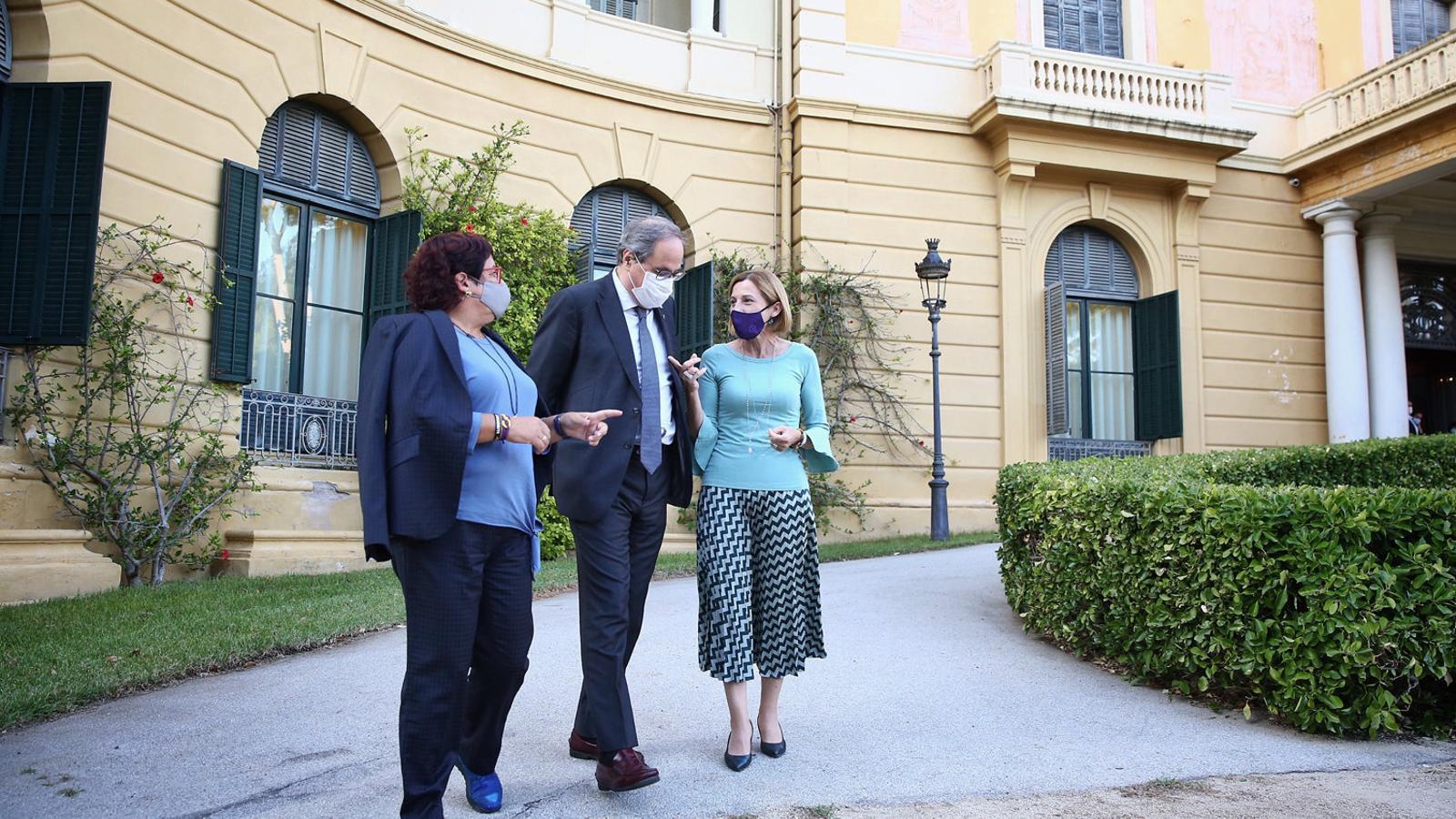Prosecutor to appeal against Forcadell and Bassa's parole
The Public Prosecutor's Office seeks Supreme court overrule

BarcelonaIt was a matter of time, and this Monday the Public Prosecutor's Office has filed an appeal to the Spanish Supreme Court against the third degree incarceration (i.e. allowed out during the day but must return to prison overnight) awarded to former councillor Dolors Bassa and former Parliament Speaker Carme Forcadell. On Tuesday, the Prison Supervision Court dismissed the appeal of the Public Prosecutor's Office as it found no compelling reasons. Now the Public Prosecutor's Office has decided to appeal this decision to the Supreme Court. The Public Prosecutor's Office is also asking for the third degree to be suspended immediately while the Supreme Court deliberates, so Forcadell and Bassa will return to the second degree - and will not be able to go out to work or on weekends - as happened last July with the prisoners in Lledoners.
In its brief, the Public Prosecutor's Office underlines a few times that the conditions for Forcadell and Bassa to obtain prison benefits such as the third degree and the application of article 100.2 of the prison regulations that allowed them to leave to work or to volunteer are not met. To begin with, the prosecutor points out that neither of them had served a quarter of their sentence and considered it "completely unusual" that only six months after being given the second degree, which allows limited exit permits, the Generalitat would give them the third degree. A modification that, he maintains, "far from favouring the fulfilment of the aims of the sentence creates a total sensation of impunity both in the prisoner and in society".
Despite the fact that Forcadell and Bassa are already approaching three years in prison - completed precisely this Monday by Oriol Junqueras and Joaquim Forn - the fear of this feeling of impunity runs through the whole of the prosecutor's brief. Thus, the Public Prosecutor's Office defends in the appeal the importance of Forcadell and Bassa not being able to enjoy a regime of semi-freedom because it considers that, in their case, being locked in a cell is the only way both to "make the delinquent aware that they cannot abuse the situation of power they hold by turning their own will into law" and to "restore the confidence in the rest of society in the rule of law".
The Public Prosecutor's Office also argues that the scales usually used by the prison services to classify common prisoners are not useful in the case of pro-independence leaders. Thus, it believes that the fact that prisoners are fully integrated into society, that they are educated or that they do not suffer from any kind of drug addiction cannot be arguments that justify the third degree. Practically drawing up an ad hoc prison regulation, the prosecutor points out that, in the case of Bassa and Forcadell, the fact that they are integrated into society should not be taken into account, and stresses that the essential step in order to enjoy a regime of semi-freedom should be to assume not only the facts but also their guilt. Thus, in the case of Bassa, she denounces that in her last word before the Supreme Court - when she was not even convicted yet - she denied that the facts committed were a crime and declared her innocence.
